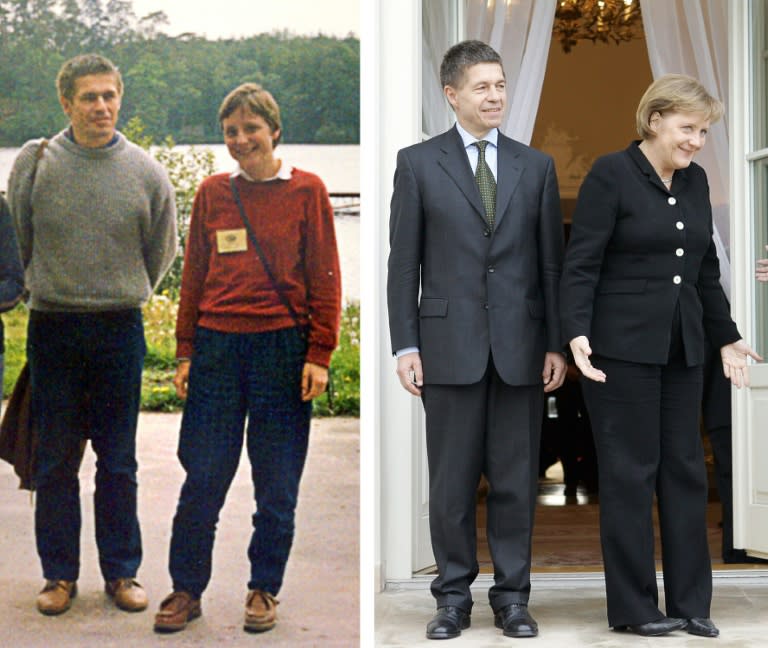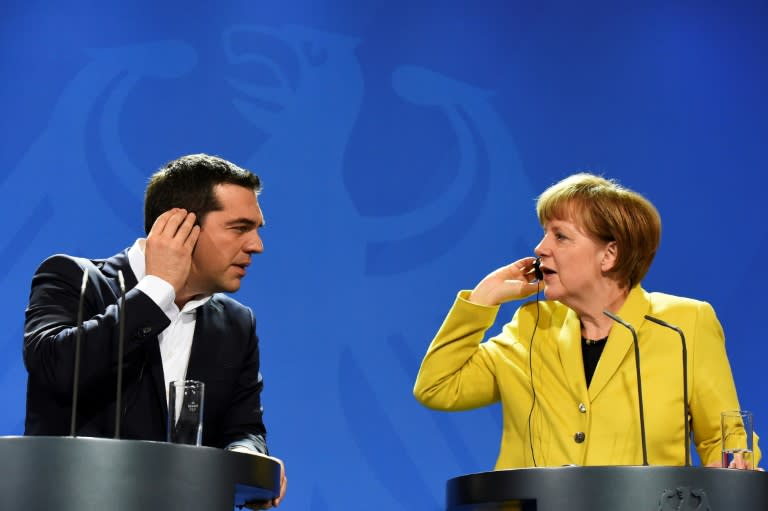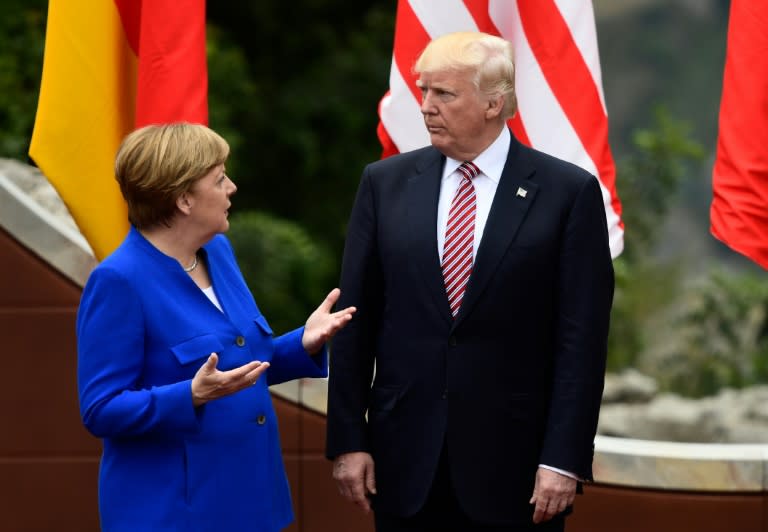Five defining moments in Merkel's career
Often called the world's most powerful woman, here are five defining moments in the career of German Chancellor Angela Merkel as she sets her sights on a fourth term in the September 24 general election. - Kohl's 'girl' - Merkel, a pastor's daughter who grew up behind the Iron Curtain, became politically active when opposition to the government grew in 1989, the year the Berlin Wall fell. She briefly served as a deputy spokeswoman for the first democratically elected East German government, before winning election in 1990 to the reunified German parliament as a member of the Christian Democratic Union (CDU) party. Then-chancellor Helmut Kohl named Merkel minister for women and youth in 1991, but disparaged his youngest cabinet member with the patronising nickname, "das Maedchen" (the girl). Merkel steadily climbed to the CDU leadership and Kohl's insult came back to haunt him when "the girl" was the only one with the guts to tell him to quit when he got bogged down in a political slush fund scandal. She was elected party chief in 2000 with more than 95 percent of the vote. On November 22, 2005, Merkel became Germany's first woman chancellor and has since won re-election twice. In the last round of elections in 2013, she led the CDU to its best ever score since reunification. - Nuclear power? Nein danke - Merkel stunned the world when she announced after Japan's Fukushima nuclear meltdown in 2011 that German nuclear reactors would be phased out by 2022. Germany continues to use coal-fired plants until it can ramp up green energy initiatives. The country has invested heavily in solar and wind power, and aims to provide 80 percent of its needs with renewable sources by 2050. - 'Madame Non' - All eyes turned to Merkel when Greece plunged into a sovereign debt crisis in 2010. She was vilified as a heartless penny-pincher as, together with Finance Minister Wolfgang Schaeuble, she took a hard line against forgiving Athens' massive debt. Dubbed "Madame Non" in some EU quarters, Merkel nevertheless went on to back three international rescue packages worth more than 300 billion euros ($320 billion) -- but only in exchange for deep budget cuts and steep tax increases. - 'We can do it' - The normally cautious Merkel won international praise with her bold move to open the country's borders to refugees at the height of Europe's migration crisis in 2015, rallying Germans with the mantra "We can do it". More than a million asylum seekers, about half of them from Syria, Iraq and Afghanistan, have since arrived in Germany, deeply dividing the nation. While she has consistently defended her controversial decision, Merkel has since said there could be no repeat of the mass influx. - Taking on Trump - When Donald Trump won the US presidential election, Merkel broke with tradition in her congratulatory message as she tied future cooperation to his adherence to democratic values. The unusual message led some media outlets to crown her the new "leader of the free world", a term Merkel scoffed at, saying it was "absurd" to think that any one person, and "certainly not a German chancellor", could tackle the world's problems. The limits to her influence were highlighted during a fractious G20 summit hosted by Germany last July, when leaders failed to bridge their differences with Trump on climate change and protectionism.





